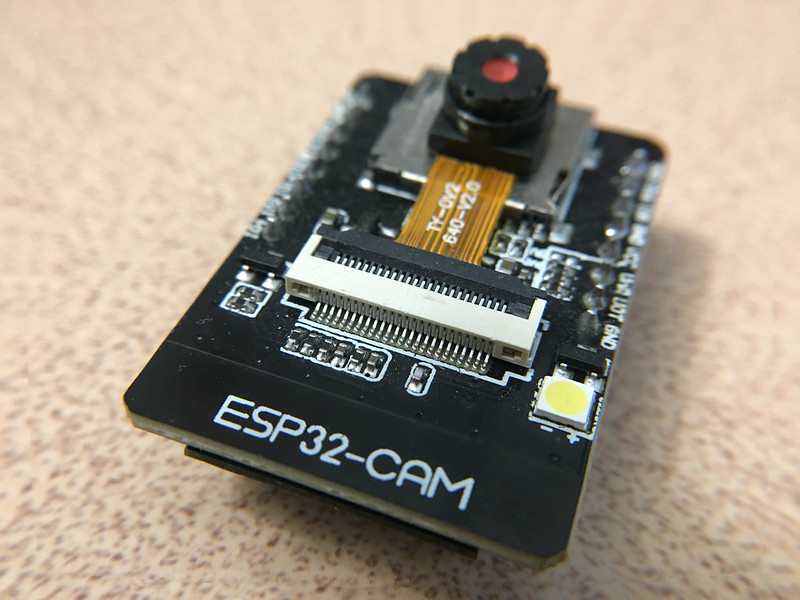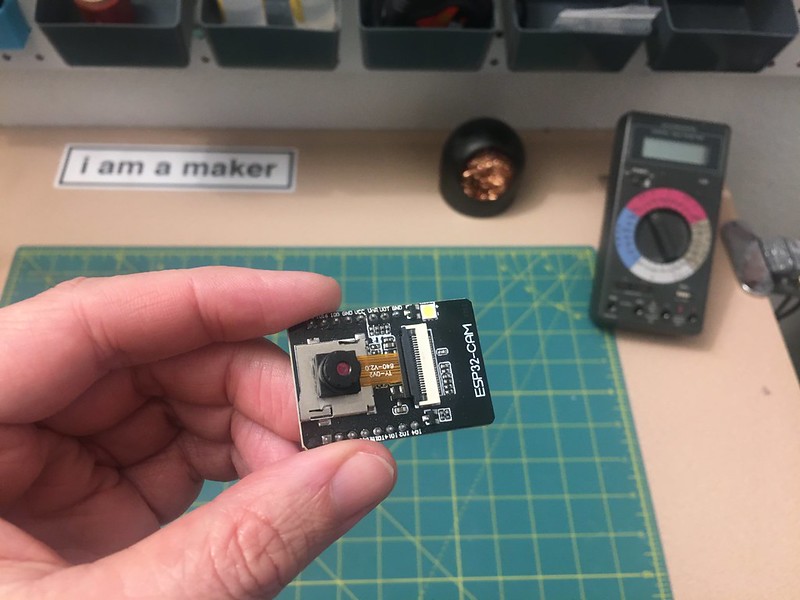ESP32-CAM: Features, applications, and comparisons
The ESP32-CAM is a compact, versatile, and cost-effective microcontroller module that seamlessly integrates a camera, Wi-Fi, and Bluetooth functionalities. Its small size makes it ideal for space-constrained projects, while its processing power and connectivity options allow for a wide range of applications. Popular in Internet of Things (IoT) solutions, the ESP32-CAM enables remote monitoring, video streaming, and smart home automation. It also finds use in surveillance systems, where it can capture high-quality images and video for security purposes. In AI-powered projects, its ability to interface with machine learning models adds advanced capabilities like object recognition and facial detection. With a camera module based on the OV2640 sensor, it provides clear images at resolutions up to 2MP. Its low power consumption and ease of integration make it an attractive option for both hobbyists and professionals in fields like robotics, automation, and smart devices.

Image : Marcio Teixeira - CC BY 2.0
Alternative options include the Raspberry Pi Zero W, offering similar Wi-Fi and Bluetooth connectivity with more processing power but requiring more space. The Arduino MKR VIDOR 4000, equipped with FPGA, also enables video processing and can be used for advanced image-processing applications.
Features of ESP32-CAM

Image : Marcio Teixeira - CC BY 2.0
1. Hardware specifications
The ESP32-CAM is based on the ESP32-S chip and features:
Processor: Dual-core Tensilica LX6
RAM: 520KB SRAM, 4MB PSRAM
Storage: MicroSD card slot (up to 4GB supported)
Camera: OV2640 (2MP) or OV7670
Connectivity: Wi-Fi 802.11 b/g/n, Bluetooth 4.2
GPIOs: Multiple I/O pins, PWM, UART, SPI, I2C
Power Consumption: 3.3V/5V, deep sleep mode available
2. Camera capabilities
The OV2640 camera module provides:
Resolutions up to 1600x1200
JPEG, BMP, and grayscale format support
Adjustable white balance, brightness, and contrast
Compatible with computer vision applications such as OpenCV
3. Wireless connectivity
With built-in Wi-Fi and Bluetooth, the ESP32-CAM enables:
Remote access via web interface
Wireless image streaming
Integration with cloud services and IoT platforms
Setting Up the ESP32-CAM
1. Required components
ESP32-CAM module
FTDI programmer (USB-to-serial adapter)
Jumper wires
5V power supply
MicroSD card (optional for storage)
2. Flashing the ESP32-CAM firmware
Connect the FTDI programmer:
TX to RX, RX to TX
5V to 5V, GND to GND
IO0 to GND (to enable flashing mode)
Install drivers and software:
Download and install Arduino IDE
Install ESP32 board manager in Arduino IDE
Select ESP32 Wrover Module in board settings
Upload sample code:
Open "ESP32-CAM Web Server" example
Enter Wi-Fi credentials
Compile and upload code
Run the camera:
Disconnect IO0 from GND
Open the Serial Monitor to check the IP address
Access the web interface via browser
Applications of ESP32-CAM
1. Security and surveillance
Home automation with motion detection
Remote video monitoring
Smart doorbell systems
2. IoT and smart projects
AI-based face recognition
Object detection with TensorFlow Lite
Edge computing applications
3. Industrial and research use
Quality control in manufacturing
Automated monitoring systems
Machine learning applications
Conclusion
The ESP32-CAM is a versatile and cost-effective solution for various imaging and IoT applications. With its powerful ESP32 core, built-in Wi-Fi, and camera capabilities, it is an excellent choice for developers and hobbyists alike. Whether for surveillance, AI-driven projects, or remote monitoring, the ESP32-CAM provides a robust platform with endless possibilities.